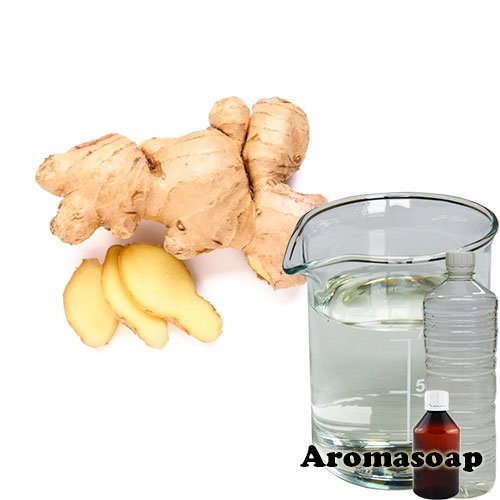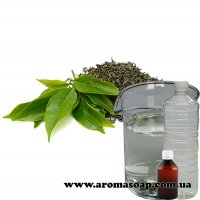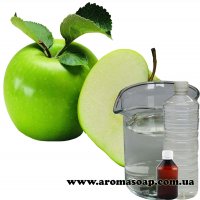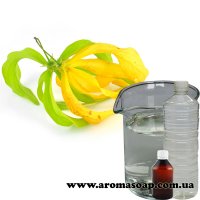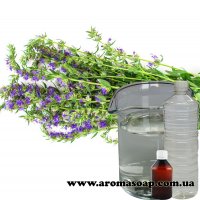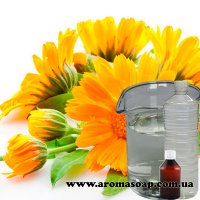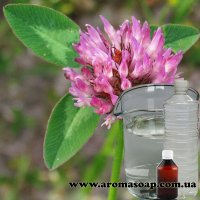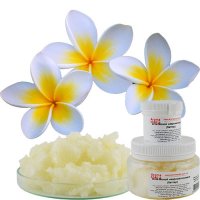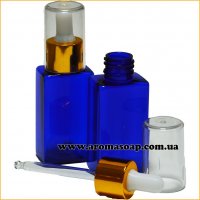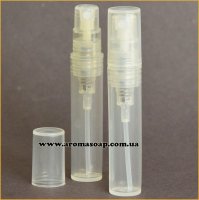Ginger hydrolate
Due to the large amount of essential oils, ginger hydrolate has a pronounced characteristic aroma and has anti-inflammatory and antimicrobial properties. The natural tonic does not cause irritation when caring for the skin, however, when used, a slight blush may appear, which indicates improved blood microcirculation. Ginger hydrolate is unpretentious in storage, but, like any natural remedy, it retains its properties longer in a cool place.
Properties of ginger hydrolate:
- Powerful antiseptic;
- Promotes skin detoxification;
- Has an anti-edematous effect;
- Tones the skin;
- Has a sebum-regulating effect;
- Increases skin elasticity. Use of ginger hydrolate in medicine: Ginger hydrolate has a strong antimicrobial effect (effective even against staphylococci and streptococci) and has a pronounced immune-modulating effect. Indispensable in the care of skin with increased oil content, wounds or ulcers. Used in fat-burning serums and products to combat cellulite. Application of ginger hydrolate in cosmetology: Ginger hydrolate is an excellent base for shampoos and hair rinses; it is recommended to be used in skin care before using fatty creams or oil masks. Also, a natural tonic helps fight wrinkles and sagging skin, toning and deeply moisturizing. The effect of using ginger hydrolate After using natural cosmetics based on ginger hydrolate, the skin becomes much healthier and firmer and acquires a normal shade, because among many types of floral water, it is ginger hydrolate that has the properties of improving blood microcirculation. After using the hydrolate, hair becomes soft and shiny, oily shine is removed and the scalp is gently cleansed. Recommendations for the use of ginger hydrolate Ginger hydrolate in its pure form can be used as a natural facial toner, sprayed directly onto the skin, or included in other types of cosmetics. Clay masks are diluted with ginger hydrolate, it is added to creams, shampoos, or simply rinsed with hair after washing. For bathing, add 1-2 cups of ginger extract to the water before bathing.
- Powerful antiseptic;
- Promotes skin detoxification;
- Has an anti-edematous effect;
- Tones the skin;
- Has a sebum-regulating effect;
- Increases skin elasticity. Use of ginger hydrolate in medicine: Ginger hydrolate has a strong antimicrobial effect (effective even against staphylococci and streptococci) and has a pronounced immune-modulating effect. Indispensable in the care of skin with increased oil content, wounds or ulcers. Used in fat-burning serums and products to combat cellulite. Application of ginger hydrolate in cosmetology: Ginger hydrolate is an excellent base for shampoos and hair rinses; it is recommended to be used in skin care before using fatty creams or oil masks. Also, a natural tonic helps fight wrinkles and sagging skin, toning and deeply moisturizing. The effect of using ginger hydrolate After using natural cosmetics based on ginger hydrolate, the skin becomes much healthier and firmer and acquires a normal shade, because among many types of floral water, it is ginger hydrolate that has the properties of improving blood microcirculation. After using the hydrolate, hair becomes soft and shiny, oily shine is removed and the scalp is gently cleansed. Recommendations for the use of ginger hydrolate Ginger hydrolate in its pure form can be used as a natural facial toner, sprayed directly onto the skin, or included in other types of cosmetics. Clay masks are diluted with ginger hydrolate, it is added to creams, shampoos, or simply rinsed with hair after washing. For bathing, add 1-2 cups of ginger extract to the water before bathing.
No comments yet
Recommend

